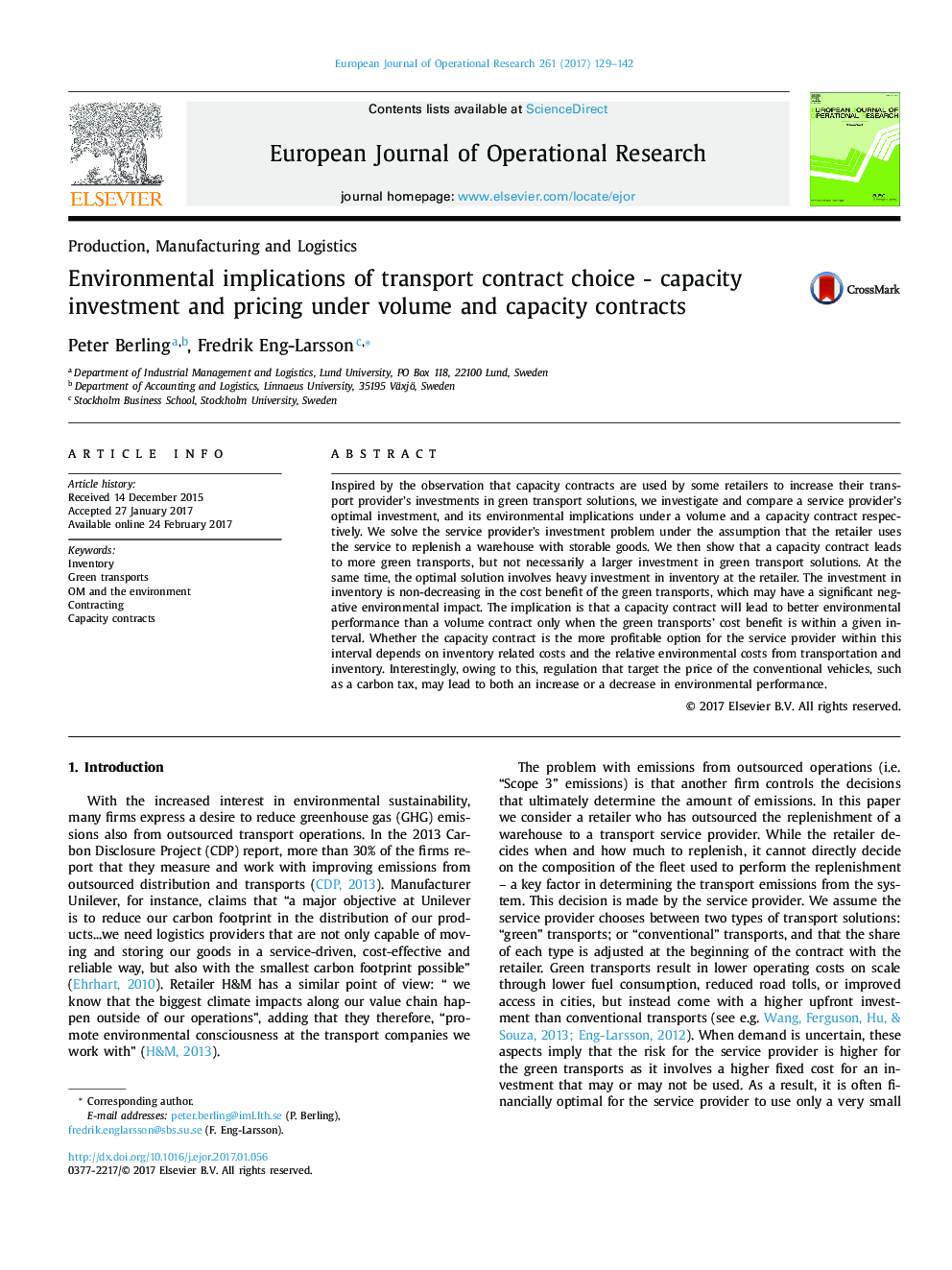| Article ID | Journal | Published Year | Pages | File Type |
|---|---|---|---|---|
| 4959545 | European Journal of Operational Research | 2017 | 14 Pages |
Abstract
Inspired by the observation that capacity contracts are used by some retailers to increase their transport provider's investments in green transport solutions, we investigate and compare a service provider's optimal investment, and its environmental implications under a volume and a capacity contract respectively. We solve the service provider's investment problem under the assumption that the retailer uses the service to replenish a warehouse with storable goods. We then show that a capacity contract leads to more green transports, but not necessarily a larger investment in green transport solutions. At the same time, the optimal solution involves heavy investment in inventory at the retailer. The investment in inventory is non-decreasing in the cost benefit of the green transports, which may have a significant negative environmental impact. The implication is that a capacity contract will lead to better environmental performance than a volume contract only when the green transports' cost benefit is within a given interval. Whether the capacity contract is the more profitable option for the service provider within this interval depends on inventory related costs and the relative environmental costs from transportation and inventory. Interestingly, owing to this, regulation that target the price of the conventional vehicles, such as a carbon tax, may lead to both an increase or a decrease in environmental performance.
Keywords
Related Topics
Physical Sciences and Engineering
Computer Science
Computer Science (General)
Authors
Peter Berling, Fredrik Eng-Larsson,
